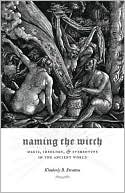Category Books
- Fiction Books & Literature
- Graphic Novels
- Horror
- Mystery & Crime
- Poetry
- Romance Books
- Science Fiction & Fantasy
- Thrillers
- Westerns
- Ages 0-2
- Ages 3-5
- Ages 6-8
- Ages 9-12
- Teens
- Children's Books
- African Americans
- Antiques & Collectibles
- Art, Architecture & Photography
- Bibles & Bible Studies
- Biography
- Business Books
- Christianity
- Computer Books & Technology Books
- Cookbooks, Food & Wine
- Crafts & Hobbies Books
- Education & Teaching
- Engineering
- Entertainment
- Foreign Languages
- Game Books
- Gay & Lesbian
- Health Books, Diet & Fitness Books
- History
- Home & Garden
- Humor Books
- Judaism & Judaica
- Law
- Medical Books
- New Age & Spirituality
- Nonfiction
- Parenting & Family
- Pets
- Philosophy
- Political Books & Current Events Books
- Psychology & Psychotherapy
- Reference
- Religion Books
- Science & Nature
- Self Improvement
- Sex & Relationships
- Social Sciences
- Sports & Adventure
- Study Guides & Test Prep
- Travel
- True Crime
- Weddings
- Women's Studies
Naming the Witch: Magic, Ideology, and Stereotype in the Ancient World » (New Edition)

Authors: Kimberly B. Stratton
ISBN-13: 9780231138369, ISBN-10: 0231138369
Format: Hardcover
Publisher: Columbia University Press
Date Published: October 2007
Edition: New Edition
Author Biography: Kimberly B. Stratton
Kimberly B. Stratton is an associate professor in the College of Humanities at Carleton University. She grew up in Seattle, holds a B.A. in English and religion from Barnard College, an M.T.S. from Harvard University, and a Ph.D. in the history of religions in late antiquity from Columbia University. She has also studied at the Hebrew University of Jerusalem. Her research covers the fields of early Christianity, rabbinic Judaism, and Greco-Roman culture and religion.
Book Synopsis
Kimberly B. Stratton investigates the cultural and ideological motivations behind early imaginings of the magician, the sorceress, and the witch in the ancient world. Accusations of magic could carry the death penalty or, at the very least, marginalize the person or group they targeted. But Stratton moves beyond the popular view of these accusations as mere slander. In her view, representations and accusations of sorcery mirror the complex struggle of ancient societies to define authority, legitimacy, and Otherness.
Stratton argues that the concept "magic" first emerged as a discourse in ancient Athens where it operated part and parcel of the struggle to define Greek identity in opposition to the uncivilized "barbarian" following the Persian Wars. The idea of magic then spread throughout the Hellenized world and Rome, reflecting and adapting to political forces, values, and social concerns in each society. Stratton considers the portrayal of witches and magicians in the literature of four related periods and cultures: classical Athens, early imperial Rome, pre-Constantine Christianity, and rabbinic Judaism. She compares patterns in their representations of magic and analyzes the relationship between these stereotypes and the social factors that shaped them.
Stratton's comparative approach illuminates the degree to which magic was (and still is) a cultural construct that depended upon and reflected particular social contexts. Unlike most previous studies of magic, which treated the classical world separately from antique Judaism, Naming the Witch highlights the degree to which these ancient cultures shared ideas about power and legitimate authority, even while constructing and deploying those ideas in different ways. The book also interrogates the common association of women with magic, denaturalizing the gendered stereotype in the process. Drawing on Michel Foucault's notion of discourse as well as the work of other contemporary theorists, such as Homi K. Bhabha and Bruce Lincoln, Stratton's bewitching study presents a more nuanced, ideologically sensitive approach to understanding the witch in Western history.
Table of Contents
Preface Acknowledgments Abbreviations
1. Magic, Discourse, and Ideology
2. Barbarians, Magic, and Construction of the Other in Athens
3. Mascula Libido: Women, Sex, and Magic in Roman Rhetoric and Ideology
4. My Miracle, Your Magic: Heresy, Authority, and Early Christianities
5. Caution in the Kosher Kitchen: Magic, Identity, and Authority in Rabbinic Literature Epilogue Works Cited Index
Subjects
 Witchcraft and Magic
Witchcraft and Magic  Magic Studies
Magic StudiesNonfiction
 Psychology
Psychology  Psychology - Theory, History & Research
Psychology - Theory, History & ResearchNonfiction
 Social Sciences
Social Sciences  General & Miscellaneous
General & MiscellaneousPsychology & Psychotherapy
 Psychology - Theory, History & Research
Psychology - Theory, History & Research  Social Psychology
Social PsychologyScience & Nature
 Social Sciences
Social Sciences  General & Miscellaneous
General & MiscellaneousSocial Sciences
 General & Miscellaneous
General & Miscellaneous  Discrimination & Prejudice
Discrimination & PrejudiceMedical Books
 Psychology & Psychotherapy
Psychology & Psychotherapy  Psychology - Theory, History & Research
Psychology - Theory, History & Research
